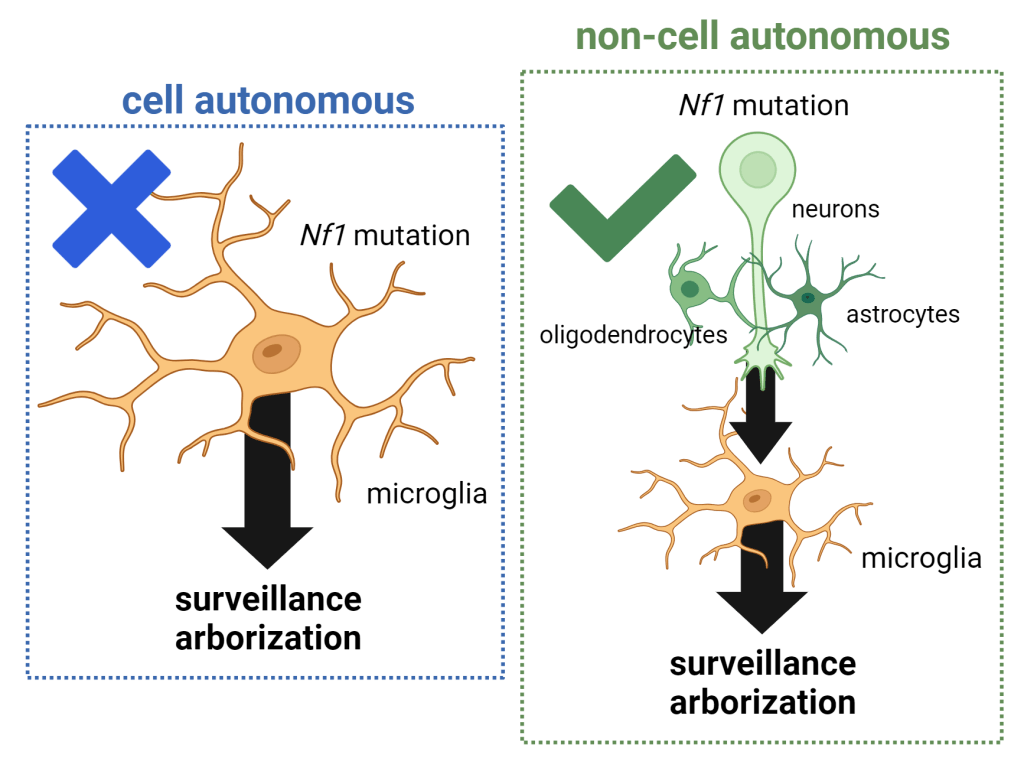
Previous studies performed in collaboration with Professor Kettenmann at the Max Delbrück Center in Berlin found that Nf1-mutant mice have a sex-dependent defect in microglia function. In this prior work, we showed that only male Nf1-mutant microglia have impaired purinergic signaling. These male Nf1-mutant microglia also have reduced process arborization and surveillance capacity.
In this new study, we sought to determine whether these microglial defects were cell autonomous or reflected adaptive responses to Nf1 mutation in other cells in the brain. For these experiments, we conditionally inactivation one copy of the Nf1 gene in microglia. Surprisingly, microglia from these mice did not have abnormalities in process arborization and surveillance capacity, suggesting that this effect was not cell autonomous.
In contrast, when Nf1 mutation was directed to neurons, astrocytes and oligodendrocytes, the microglia defects found in Nf1-mutant mice were recapitulated. Collectively, these data reveal that Nf1-mutant sexually dimorphic microglia abnormalities are likely not cell-intrinsic properties, but rather reflect a response to Nf1 mutation in other brain cells.